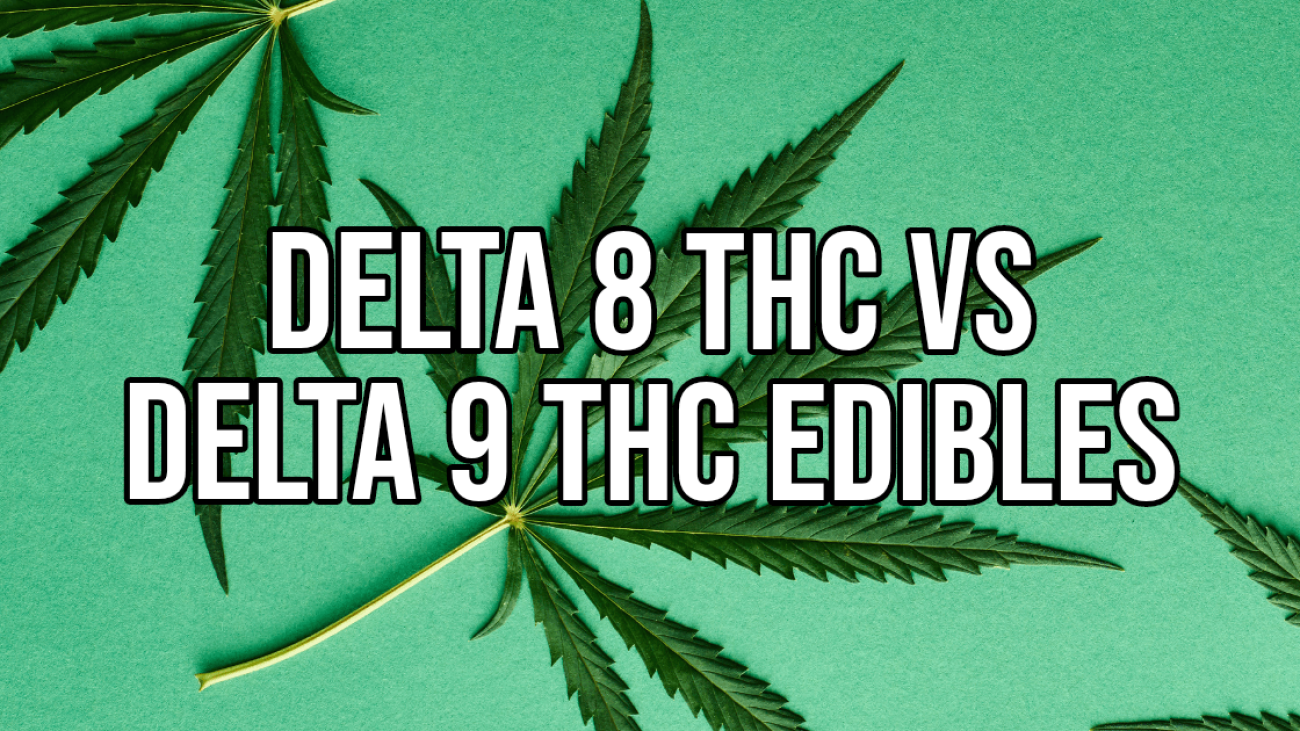Cannabis is a plant that has been used for medicinal, spiritual, and recreational purposes for thousands of years. Within the cannabis plant, there are over 100 different cannabinoids, each with their own unique properties and effects. Two of the most well-known cannabinoids are Delta 8 THC and Delta 9 THC. While they share some similarities, they also have important differences, especially when it comes to edibles. Read on to discover Delta 8 THC vs Delta 9 THC edibles: Exploring the Differences in Effects for Consumers.
Edibles are a popular way to consume cannabis, especially for those who do not want to smoke or vape. When cannabis is ingested, it goes through a different metabolic process than when it is smoked or vaporized. The liver converts Delta 9 THC into 11-hydroxy-THC, which is more potent and has a longer-lasting effect. Delta 8 THC, on the other hand, does not convert into 11-hydroxy-THC to the same extent, which leads to some important differences in the effects for consumers.
One of the biggest differences between Delta 8 THC and Delta 9 THC edibles is the onset time and duration of the effects. Delta 9 THC edibles can take anywhere from 30 minutes to two hours to take effect, depending on the individual’s metabolism and the contents of the edible. Once the effects set in, they can last for up to 8 hours or more, depending on the dosage.
Delta 8 THC edibles, on the other hand, have a quicker onset time, usually within 30 minutes to an hour. The effects are also typically less intense and shorter-lived than Delta 9 THC edibles, lasting for around 4-6 hours. This can make Delta 8 THC edibles a more manageable option for those who are new to cannabis or who are looking for a milder experience.
Another key difference between Delta 8 THC and Delta 9 THC edibles is the psychoactive effects. Both cannabinoids can produce a range of effects, including euphoria, relaxation, and altered perception. However, Delta 9 THC is generally considered to be more potent and psychoactive than Delta 8 THC. This can make Delta 9 THC edibles a more intense experience, with potential for anxiety, paranoia, and other adverse effects if the dosage is too high.
Delta 8 THC, on the other hand, is often described as producing a milder, more relaxed high. While it can still produce euphoria and altered perception, the effects are typically less intense and more manageable for most people. This can make Delta 8 THC edibles a better option for those who are looking for a more subtle experience, or who are using cannabis for medicinal purposes and do not want to feel overly intoxicated.
Another important factor to consider when comparing Delta 8 THC and Delta 9 THC edibles is the legal status of each cannabinoid. While Delta 9 THC is illegal at the federal level in the United States, Delta 8 THC as well as products containing less than 0.3% Delta 9 THC are currently legal in all 50 states due to the 2018 Farm Bill. Some states have banned Delta 8 THC, while others have not yet addressed its legality. This means that consumers should be aware of the laws in their state before purchasing Delta 8 THC edibles.
Finally, it’s worth noting that Delta 8 THC and Delta 9 THC edibles can have different effects on different people, depending on factors like metabolism, tolerance, and dosage. It’s always important to start with a low dose and to wait for the effects to set in before consuming more. It’s also important to purchase edibles from a reputable source, and to check the ingredients and dosage carefully before consuming.
In conclusion, while Delta 8 THC and Delta 9 THC edibles share some similarities, they also have important differences when it comes to selecting which one is right for you. For more information, see our other posts about Delta 8 THC and Delta 9 THC.


